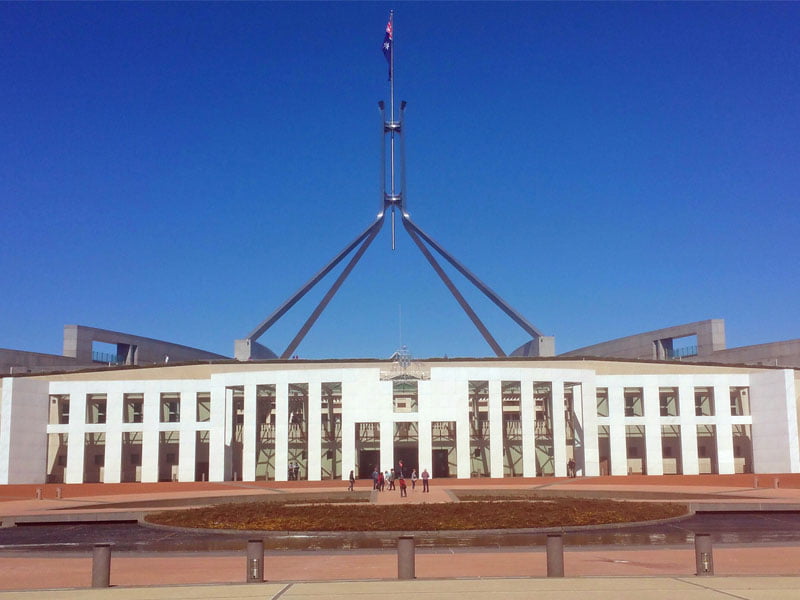Labor and Coalition parliamentarians have banded together to throw support behind a measures aiming to support the burgeoning bitcoin and blockchain sectors in Australia.
The Parliamentary Friends of Blockchain group, spearheaded by Labor senator Sam Dastyari and Liberal senator Jane Hume, met for the first time on Tuesday night at Parliament House in Canberra.
It comes as bitcoin hit an all-time high of $4070 per bitcoin this week following a “hard split” in the currency. Less than seven years ago, one bitcoin was worth less than 10 cents.

The new parliamentary group held a meeting with more than 100 digital currency businesses and advocates on Tuesday night, with a number of senators addressing the crowd.
“The question for Australia is are we going to follow or are we going to lead? We need to find a bipartisan way of doing this,” Senator Dastyari said.
“We can’t compete with our Asian neighbours when it comes to producing cheap goods and services anymore. We can compete when it comes to financial services, but that is going to mean big, bold decisions.”
Senator Hume also spoke at the event, saying that the “opportunities for government, academia and the private sector are enormous”.
Stone & Chalk Melbourne boss Alan Tsen said the interest in the sector from politicians on both sides was a positive for the sector.
“Any engagement by government and regulators is a good thing for industry. They’re interested in understanding what’s happening in the space,” Mr Tsen told InnovationAus.com.
“Part of the challenge is educating people around what the technology is about. Any involvement, anything that means that people are out there, is great.”
While a focus has been on the possibility of the Reserve Bank pursuing a digital Australian dollar, the group has also thrown its support behind a number of other initiatives centred on the blockchain space.
There has been a growing push from local players, coordinated by FinTech Australia, who have sensed real opportunity for big moves from the government, especially following the Commonwealth Bank’s money laundering scandal, FlashFX founder and parliamentary group member Nicolas Steiger said.
“The government is interested in blockchain, as are a number of regulators who are actively engaging with what the industry is asking for. But it will take some time to implement and update existing regulatory frameworks,” Mr Steiger told InnovationAus.com.
“The timing is good because when you look at something like the CBA scandal, we need to build a better trusted financial environment.”
The group is pushing for Parliament to get on with removing the double taxation of digital currencies.
Under current rules, digital currencies like bitcoin are not defined as money, and have GST imposed on it at both ends.
After first announcing plans to do away with this archaic system, the federal government took more than a year to officially set a time on it, with this year’s budget revealed the double taxation would be stopped from July this year.
But the legislation has still not passed the Parliament, although the government has confirmed that the changes will be backdated to the last financial year.
The group is also pushing for digital currencies to be included in the Anti-Money Laundering and Counter-Terrorism Financing Act 2006, allowing digital currency-based business to report all transactions.
According to Mr Stiegler, negotiations are far progressed on this issue, with legislation expected to reach Canberra before the end of the year.
“At the moment you have all these bitcoin businesses in Australia that, because digital currencies aren’t classified as financial products, can’t get a license. So digital currency businesses are not able to report their transactions,” he said.
What has garnered the most attention so far has been the politician’s push for the RBA to develop its own official, tokenised currency on the blockchain.
But Mr Tsen said that although this has potential, it still has a long way to go.
“It’s something that quite a few startups would like to see happen. It opens up possibilities around moving value, but it’s at an infant stage. It would be something that would move us more towards a technology-first economy and towards a more frictionless payments landscape,” he said.
“It’s an interesting one but it’s pretty early on.”
Do you know more? Contact James Riley via Email.

